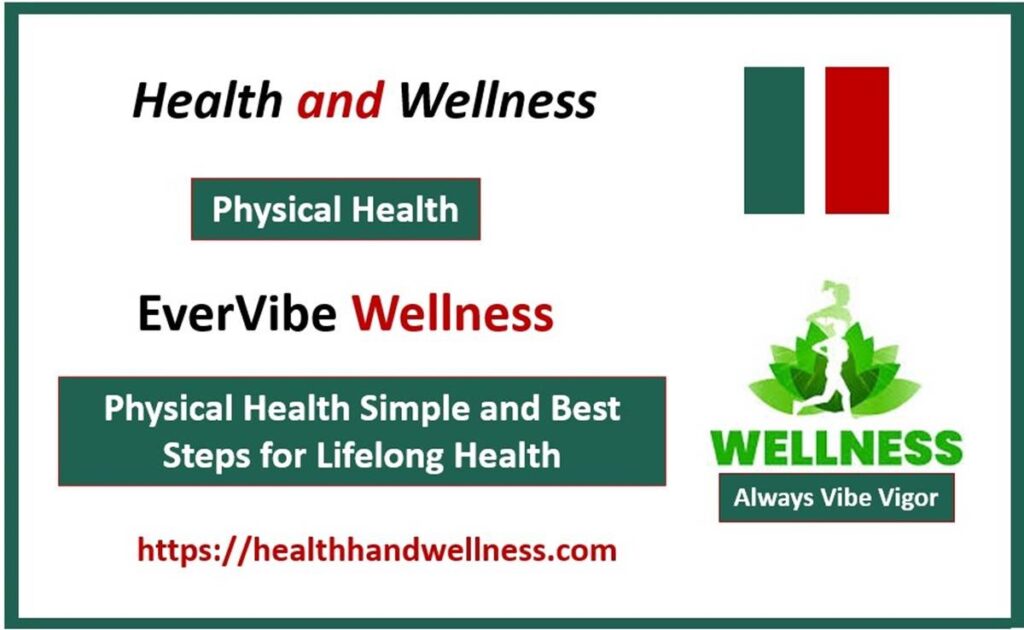Search for simple and effective steps for lifetime Physical Health in 2025. Experienced
It is not difficult to maintain good health. Using some simple steps will help you stay better and longer. Learn to take care of our body in 2025.

How to improve your health in 2025?
Improvement in your health means doing small things every day. Here are some simple ways:
Eat healthy foods
- Fruits and vegetables: Eat lots of colored fruits and vegetables.
- Whole grains: Choose brown rice and whole wheat bread.
- Lean protein: Eat chicken, fish, beans and nuts.
- Limit sugar and salt: can be too bad for your heart.
Transfer your body
- Exercise daily: Try to be active for at least 30 minutes.
- Funny activities: dancing, playing, or walking with friends.
- Be active: Moving forward helps your heart and muscles to be strong.
drink water
- Stay hydrated: Drink lots of water every day.
- Limit sugar drinks: Choose water on soda or juice.
Good sleep
- Get enough sleep: Children require about 9–11 hours; Adults require 7-9 hours.
- Routine while sleeping: Go to bed and wake up every day at the same time.
Go to the doctor
- Regular check-up: See your doctor for Physical Health checkup.
- Vaccination: Stay up-to-date with your shots.
What are 5 tips for Physical Health?
Here are five easy suggestions to keep your body healthy:
Eat a balanced diet
- Healthy food: Fruits, vegetables, grains and protein are included.
- Limit junk food: Avoid lots of sweets and fried foods.
Remain active
- Daily Exercise: Transfer your body every day.
- Funny activities: play games or go for a walk.
drink water
- Stay hydrated: Water helps your body to function properly.
Enough sleep
- Relax: Sleep helps your body to cure and grow. Physical Health
Avoid harmful habits
- No smoking: Smoking is bad for your lungs and hearts.
- Limit alcohol: Excessive alcohol can harm your body.
How do I start in 2025?
At the beginning of the year there is the remaining tone of the year. Like: Method:
Set goals
- Make a plan: Determine the health goals you want to achieve.
- Write them down: Keep your progress in mind.
Healthy eating
- Meal Planning: Prepare healthy meals in advance.
- Try new foods: add variety to your diet.
Become active
- Enter your group: Movement with friends and family. Try new activities: Find interesting options for moving.
I sleep well
- Create a routine: Go to bed and wake up at the same time.
- Relax before going to bed: Read or listen to music.
Stay positive
- Think of a good idea: A positive attitude will help you in your health.
- Be Friendly: If you’re helping others, you feel good too. Physical Health
5 Things That Are Good for Your Physical Health
Here are five things that will make you feel better:
Healthy eating
- Cute Food: Choose foods that are good for your health.
- Balanced diet: Add all food groups.
Regular movements
- Stay active: Move every day. Fun Activities: Find the exercises you enjoy.
My sleep has improved
- Rest: Sleep helps your body and mind.
- Sleep Routine: Maintain consistent bedtime.
Keep the hydraulic
- Drinking water: Water keeps your body well.
- Limit the typical sugar drink: Choose water from soda.
Mental health
- Stay happy: Do something to make you smile.
- Talk to someone: Share your feelings with friends and family.
Health care in 2025 is easy with these simple steps. Eat well, move, drink water, sleep well, stay positive. Remember that small changes can make a huge difference. Start today and enjoy a healthier life!